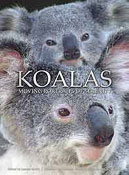GREENER NEWS BRIEFS :: October 12, 2006
AFRICA :: TREES RECLAIM AFRICAN DESERT
Farmers in Africa are at last reclaiming the desert, and turning the barren wasteland of the Sahel region, on the edge of the Sahara, into productive farmland. Tree planting has led to the re-greening of as much as 3 million hectares of land in Niger, enabling some 250,000 hectares to be farmed again. Where 20 years ago there was barely a tree, there are now between 50 and 100 per hectare.
AUSTRALIA :: HELLO, SOLAR
 Solar sailing is about to hit big time. The concept of harnessing the ocean’s abundant wind and sun to power any modern boat began ten years ago. The first solar sailing ferry with moveable solar wings has been operating in Sydney for six years now, and its designer has just won a contract to build another in San Francisco.
Solar sailing is about to hit big time. The concept of harnessing the ocean’s abundant wind and sun to power any modern boat began ten years ago. The first solar sailing ferry with moveable solar wings has been operating in Sydney for six years now, and its designer has just won a contract to build another in San Francisco.
PACIFIC :: TROUBLE IN DARWIN’S PARADISE
Darwin’s iconic islands, the Galapagos, are under threat from two sides. The unique biodiversity of the Galapagos is already under attack from rats, goats and other alien species. Now hoards of tourists descending on the islands, including the imminent arrival of cruise ships, could further disturb the environment. The chances are they’ll bring more invasive species, together with the passengers’ sewage waste and diseases.
UNITED STATES :: ANOTHER REASON TO AVOID MERCURY
It just got more complicated for expectant mothers weighing up the benefits and risks of eating fish. Although fish contains omega-3 fatty acids which can beneficial to babies, it can also contain mercury, which causes neurological damage to the fetus. Now a study of pregnant women in Michigan has found that mercury could pose yet another risk: premature birth.
VENEZUELA :: IS VENEZUELA’S PIPELINE THE HIGHWAY TO ECO-HELL?
Venezuela’s president, Hugo Chávez, has secured backing from South America’s other main leaders to construct the world’s biggest oil pipeline, 10,000 kilometres long. Chávez says the pipeline will solve South America’s growing energy crisis. Environmentalists on the other hand are worried about the huge volume of forest that would need to be cleared, as well as the devastating impact that an oil spill might have.
UNITED STATES :: COSMIC RAYS KNOW THEIR LIMITS
Cosmic rays, the high-energy subatomic particles that tear through space at near light speed, may not be so powerful after all. A new analysis of results from a cosmic ray detector in Utah, detected a sharp cut-off in the energy spectrum of cosmic rays. This is in stark contrast to a Japanese experiment that previously reported particles with bafflingly higher energies.
NETHERLANDS :: DETECTING FAKES AT A STROKE
A computer program could help spot forged paintings. The program analyses artwork to spot an artist’s unique use of colour and brushwork, and has already been trained on Van Gogh’s paintings. Researchers in the Netherlands say their system can also help date paintings by a particular artist.
GENERAL :: EARTH WITHOUT HUMANS
If tomorrow dawns without humans and Nature is left once again to reclaim the planet, the sad fact is that the outlook starts to get a whole lot better. The air would become clear of pollutants, roads and buildings would crumble, fields would return to forest and prairie land, and threatened biodiversity would recover. All things considered, 100,000 years from now almost every trace of our present domination will have vanished – save for a few peculiar fossils and souvenirs.
JAPAN :: MY ANDROID TWIN
Researchers in Japan are experimenting with their latest and strangest humanoid robot - and this is the first of its kind that can actually pass for human in appearance. Researchers hope that if their androids are convincingly human-like they could serve as “controls” to study human behaviour.
UNITED STATES :: LIGHT AT THE END OF THE TUNNEL
You don’t have to be at death’s door to have a near-death experience (NDE), as many as 40 per cent of us could be primed to see the light. Some scientists say falling levels of oxygen in the brain could trigger vivid illusions, but explanations are impossible to test. According to a neurophysiologist in Lexington, US, the experience is little more than a dream-like state brought on by stress and a common sleep disorder.
GREENER NEWSROOM
Keywords: SCIENCE AND TECHNOLOGY NEWS & FEATURES
Farmers in Africa are at last reclaiming the desert, and turning the barren wasteland of the Sahel region, on the edge of the Sahara, into productive farmland. Tree planting has led to the re-greening of as much as 3 million hectares of land in Niger, enabling some 250,000 hectares to be farmed again. Where 20 years ago there was barely a tree, there are now between 50 and 100 per hectare.
AUSTRALIA :: HELLO, SOLAR
 Solar sailing is about to hit big time. The concept of harnessing the ocean’s abundant wind and sun to power any modern boat began ten years ago. The first solar sailing ferry with moveable solar wings has been operating in Sydney for six years now, and its designer has just won a contract to build another in San Francisco.
Solar sailing is about to hit big time. The concept of harnessing the ocean’s abundant wind and sun to power any modern boat began ten years ago. The first solar sailing ferry with moveable solar wings has been operating in Sydney for six years now, and its designer has just won a contract to build another in San Francisco.PACIFIC :: TROUBLE IN DARWIN’S PARADISE
Darwin’s iconic islands, the Galapagos, are under threat from two sides. The unique biodiversity of the Galapagos is already under attack from rats, goats and other alien species. Now hoards of tourists descending on the islands, including the imminent arrival of cruise ships, could further disturb the environment. The chances are they’ll bring more invasive species, together with the passengers’ sewage waste and diseases.
UNITED STATES :: ANOTHER REASON TO AVOID MERCURY
It just got more complicated for expectant mothers weighing up the benefits and risks of eating fish. Although fish contains omega-3 fatty acids which can beneficial to babies, it can also contain mercury, which causes neurological damage to the fetus. Now a study of pregnant women in Michigan has found that mercury could pose yet another risk: premature birth.
VENEZUELA :: IS VENEZUELA’S PIPELINE THE HIGHWAY TO ECO-HELL?
Venezuela’s president, Hugo Chávez, has secured backing from South America’s other main leaders to construct the world’s biggest oil pipeline, 10,000 kilometres long. Chávez says the pipeline will solve South America’s growing energy crisis. Environmentalists on the other hand are worried about the huge volume of forest that would need to be cleared, as well as the devastating impact that an oil spill might have.
UNITED STATES :: COSMIC RAYS KNOW THEIR LIMITS
Cosmic rays, the high-energy subatomic particles that tear through space at near light speed, may not be so powerful after all. A new analysis of results from a cosmic ray detector in Utah, detected a sharp cut-off in the energy spectrum of cosmic rays. This is in stark contrast to a Japanese experiment that previously reported particles with bafflingly higher energies.
NETHERLANDS :: DETECTING FAKES AT A STROKE
A computer program could help spot forged paintings. The program analyses artwork to spot an artist’s unique use of colour and brushwork, and has already been trained on Van Gogh’s paintings. Researchers in the Netherlands say their system can also help date paintings by a particular artist.
GENERAL :: EARTH WITHOUT HUMANS
If tomorrow dawns without humans and Nature is left once again to reclaim the planet, the sad fact is that the outlook starts to get a whole lot better. The air would become clear of pollutants, roads and buildings would crumble, fields would return to forest and prairie land, and threatened biodiversity would recover. All things considered, 100,000 years from now almost every trace of our present domination will have vanished – save for a few peculiar fossils and souvenirs.
JAPAN :: MY ANDROID TWIN
Researchers in Japan are experimenting with their latest and strangest humanoid robot - and this is the first of its kind that can actually pass for human in appearance. Researchers hope that if their androids are convincingly human-like they could serve as “controls” to study human behaviour.
UNITED STATES :: LIGHT AT THE END OF THE TUNNEL
You don’t have to be at death’s door to have a near-death experience (NDE), as many as 40 per cent of us could be primed to see the light. Some scientists say falling levels of oxygen in the brain could trigger vivid illusions, but explanations are impossible to test. According to a neurophysiologist in Lexington, US, the experience is little more than a dream-like state brought on by stress and a common sleep disorder.
GREENER NEWSROOM
Keywords: SCIENCE AND TECHNOLOGY NEWS & FEATURES



10:38 AM









<< Home